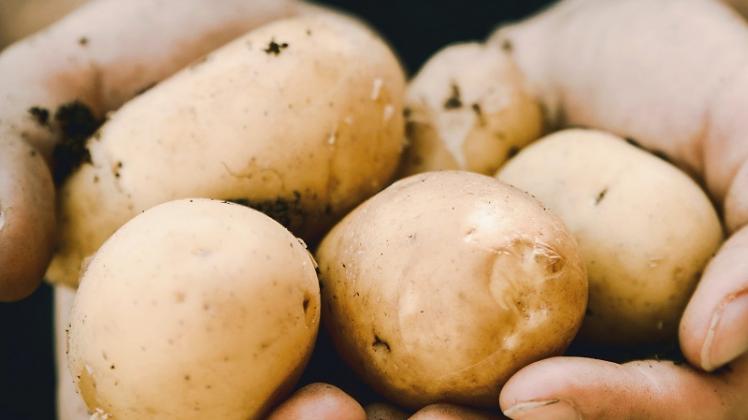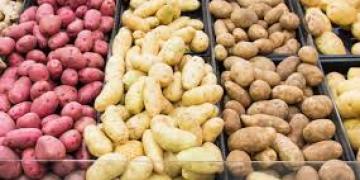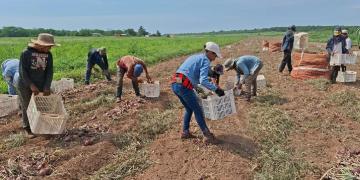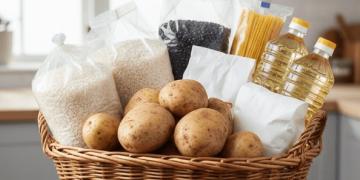Canadá: AI in agriculture: Croptic technology targets potato farming by mapping weeds with drone detection
Potato cultivation is transforming as technologies such as AI and robotics are increasingly integrated into traditional farming practices.

Standard practices in potato farming, like soil treatments and foliar feeding, have their limitations, particularly when it comes to meeting the nutrient requirements during the later growth stages of potatoes.
With the rising costs of fuel and fertilizer, there is also a need for a more precise and efficient method of nutrient delivery.
Ruben Van De Vijver, co-founder at Croptic, a Belgium agriculture technology start-up, speaks with Food Ingredients First: “Using drone-based detection, certain problematic weeds can be mapped, which allows a site-specific treatment.”
“This reduces the amount of herbicides used and lessens the negative impact on potato growth, therefore allowing optimal yield with minimal weed pressure. Using Croptic technology, a farmer can save more than average. Other applications are the detection of Colorado beetle, diseases like Potato Virus Y in seedling potato farming and the early detections of early and late blight.”
Van de Vijver further explains how drones and AI could improve traditional spraying methods. “Traditional methods involve full blanket spraying, where every part of the field receives the same dose. Using drones and AI, we provide an application map that tells the spraying machine where to spray and where not.”
“This is especially interesting during the correction treatment, where weeds often occur sparse or with problematic weeds such as thorn apple.”
Innovative advances through research
Researchers around the world are also working on enhancing the technology in potato farming.
The research from Dalhousie University, Canada, led by Ph.D. candidate Reem Abukmeil and associate professor Ahmad Al-Mallahi, has combined a portable spectrophotometer with machine learning algorithms that have been trained on historical data, allowing for a near real-time analysis of the plant’s nutritional needs.
This approach enables farmers to apply fertilizers more efficiently and at the right time, ensuring that plants receive the nutrients they need at specific growth stages.
The EU is another tech innovation powerhouse rushing to unlock the potential for high-tech agriculture.
A recent German study has shed light on the best field robots available on the European market for potato cultivation. The results revealed that two field robots, namely Robotti LR and Robotti 150 D, are highly suitable for potato cultivation, meeting the minimum requirements and offering additional optional functions.
The project also addresses challenges in traditional nutrient management. The precision and speed of the portable spectrophotometer reduce labor intensity and improve the accuracy of nutrient assessment.
Overcoming resistance
Despite the technological breakthrough, some farmers are still reluctant to adopt AI because of their familiarity with traditional farming practices.
Van De Vijver explains that this attachment to conventional methods is tied to their perceived profitability and the success they have historically experienced.
“Economic factors are, together with legislation, the main drivers for the adoption of new technologies. By supporting farming to produce in a better way, such as by making Data-driven decisions, the adoption will be faster.”
“Legislation, on the other hand, is pushing for a change by removing pesticides from the market. Here, innovation can propose an alternative, but these alternatives should be cost-effective and directly fit within the farmers’ way of working,” he further states.
“Agriculture is a major domain where AI can make a significant difference. While extensive automation has been challenging due to natural variations in agricultural production, AI has the potential to overcome these challenges, ushering in a new era of ‘agriculture 4.0,” concludes Van De Vijver.
By Sichong Wang
Fuente: https://www.foodingredientsfirst.com/news/ai-in-agriculture-croptic-technology-targets-potato-farming-by-mapping-weeds-with-drone-detection.html




